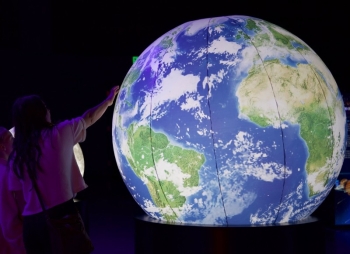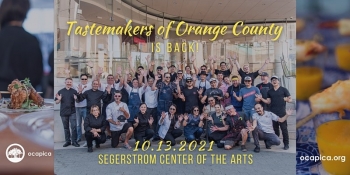David Coles
1. What inspired you to get into wealth management?
I grew up in a family that was focused on giving and helping others. Often times, my family spent our free time making care packages for the military, blankets for individuals going through cancer treatments, or planting trees in our community parks. This desire to help others translated over to my dad’s business as a wealth advisor. He often spoke about the great opportunities he had to help clients have a secure future. Growing up with this influence and seeing the freedom and income this career offered my dad inspired me to follow in his footsteps.
2. How has the industry changed since you first became an advisor?
In the last 10 years, the financial industry has seen a big change through the infusion of technology. I have always loved technology and study it often - I consider myself a tech geek. This shift has made advisors more efficient and offered opportunities to focus on things that matter more for clients. It has also pushed advisors to rethink the way they are conducting business with their clients. Where does the value of a Wealth Advisor lie when an algorithm can pick an asset allocation just as good, or even better, than the majority of advisors?
3. What led to the development of Human Centric Wealth Planning?
Seeing the increase in technology and considering where we best serve our clients, as a team we realized that the majority of our time with clients was spent discussing those people, entities, and desires that mean the most to them. With that knowledge, we decided to create a process that helps the client and advisor work together in creating financial systems that promote the client’s well-being and leads to a healthy relationship with their wealth.
4. What is Human Centric Wealth Planning?
Human Centric Wealth Planning sets out to understand the science behind well-being and apply some of the evidence in the context of clients making decisions relating to their wealth. To understand how we can use financial planning to achieve better well-being, we worked with a team of well-being scientists, data analysts, economists and financial planners. We developed a questionnaire that can be measure well-being along with a process that assists the advisor to implement financial systems that promote well-being.
5. How is Human Centric Wealth Planning different from the traditional wealth planning we commonly know?
Traditional wealth planning focuses on how much money you have or need to accomplish a certain goal, such as retirement. It is important to note, research has shown that only a small portion of well-being is attributable to external conditions like money – as little as 10%. Human-Centric Wealth Planning takes into account the entire make up of a person’s well-being to create financial systems.
6. Do you feel this innovative approach will change the way wealth managers strategize their clients’ portfolios?
Absolutely, every person is different and has their own core values that make up their well-being. This process allows the client and advisor to understand their individual well-being. By knowing that, the advisor is better equipped to implement financial investments that are in their best interest and add to the client’s life-satisfaction.
7. As a millennial, how does this new planning process bring more flexibility and value into your own life?
This new planning process has helped me dive into the various areas of my well-being that I want to improve. From there I was able to create a plan where I reallocated the way I was using my money that was more in line with the core values of my well-being.
8. As we head into the New Year, what are some things people should start developing a plan for?
Taxes! There are so many ways to reduce your tax liability, but it is much easier to do before the year is over. Also, if you have any big events happening soon (marriage, retirement, new baby, new home purchase, etc) it is important to prepare your finances and your emotional well-being for it. Life changes have a drastic effect on your well-being and you can be prepared to flourish with a little planning!
9. Are there any shifts you anticipate in the New Year in your industry?
Something that everyone should be aware of is the new Regulation Best Interest that goes into effect in June 2020. This regulation sets out to ensure registered representatives and advisors put the best interest of their clients first. Though I am not always a fan of more regulation, I believe this is needed for the industry. Advisors need to focus more on knowing their clients and making the best recommendations for them not on what makes the advisor the most money.
10. As an OC native, what are your favorite hot spots?
Some of my favorite places include Dana Point Harbor (getting a coffee from Coffee Importers is a must!), Ocean at Main in Laguna Beach, Marche Moderne for dinner or brunch in Crystal Cove, and a new bar opening this month in Anaheim called Strong Water.
11. What is a passion of yours outside of the office?
Outside the office, I love food, wine, and sailing. My girlfriend and I have completed WSET Level 2 training and are pursuing our Sommelier certifications. If I am not eating great food or drinking amazing wine, I am sailing on my boat out of Dana Point Harbor.
12. Are there local philanthropic causes that you choose to support?
I love working with organizations that help children in need. Two great organizations I support are Covenant House, which provides housing and supportive services to youth facing homelessness, and Childhelp, an organization that helps victims of child abuse.
13. Working alongside family day to day in the office, how do you balance the relationships?
Luckily, my dad and brother have been some of my best friends my whole life. It’s been 11 years in the making though. It’s not always easy, but we try to remember that we are on the same team, are passionate about what we do, and we love each other. With that in mind, I become a little more forgiving of things in and out of the office.
14. What do you do to stay inspired?
I read, travel, study tech, and have meaningful, connecting conversations with those close to me.
15. Are there any special projects you have in the works for 2020?
We are working on Human-Centric Wealth Planning software that advisors across the nation can use with their clients. Along with improving compliance with Regulation Best Interest, we believe it will create a more autonomous relationship between client and advisor.
16. What do you think is the most common misconception about your industry?
“It’s all about a well-invested portfolio.” Many people think that if an advisor can invest your money in a diversified portfolio and constantly “beat the market” then the client is in good hands. A well-invested portfolio is one piece of your financial system and it is important to have a process that looks at taxes, protection, family planning, and areas of your personal fulfillment.
17. What is the best piece of advice you have ever received?
It’s nice to be important but it is more important to be nice.
18. What is the latest book you have read?
Necessary Endings by Henry St. Cloud.
19. Favorite Quote?
“What we are doing here is so important we better not take it too seriously.” – Suzuki Roshi
20. Are there any travel destinations that are hot on your list?
Next month I’ll be visiting Rarotonga in the Cook Islands, which has been on my bucket list! I’d also love to explore Costa Rica, Morocco, and Japan.





